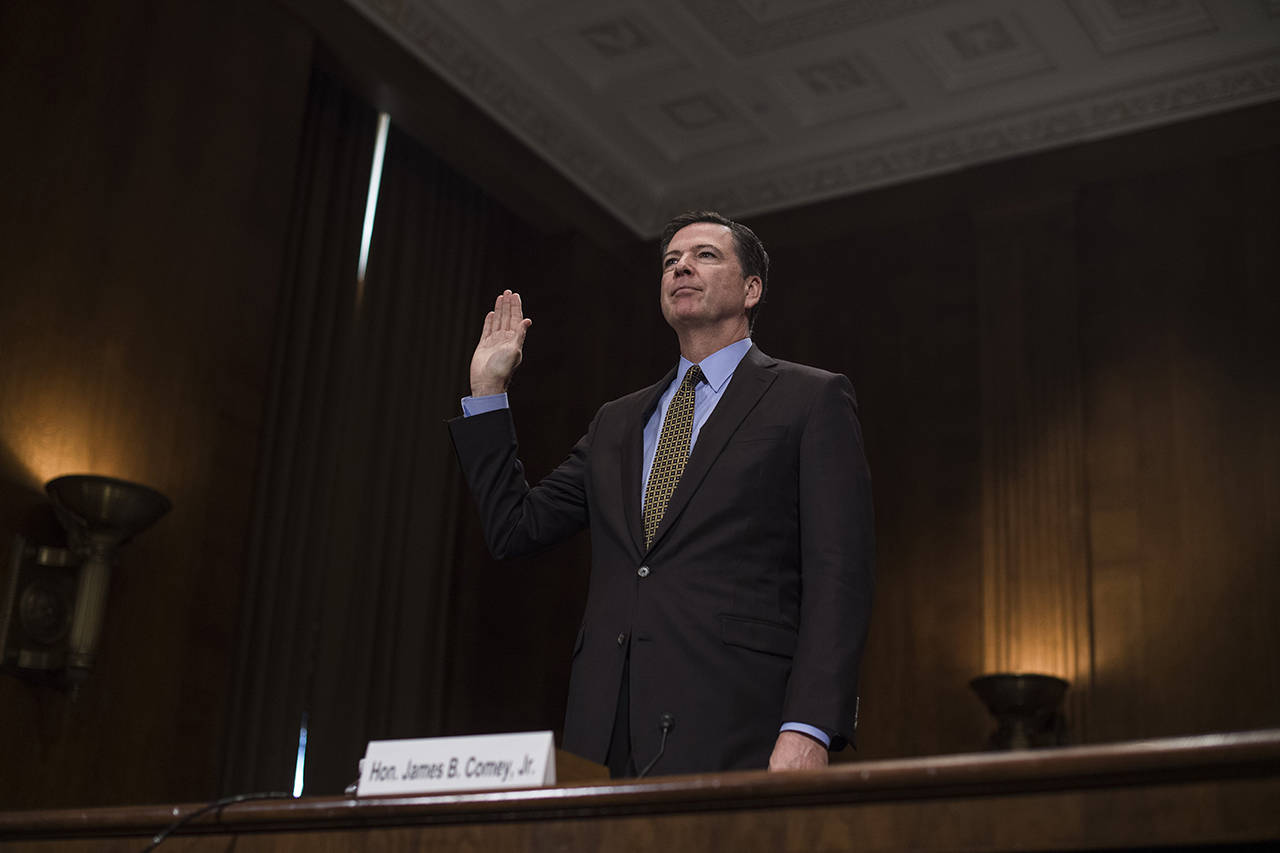By Noah Bierman and David Lauter
Tribune Washington Bureau
WASHINGTON, D.C. — President Donald Trump has fired FBI Director James B. Comey, saying that the dramatic move was necessary to allow a “new beginning” at the FBI.
Comey has been supervising an investigation of Russia’s meddling in the 2016 election and the possibility of cooperation between people linked to Trump’s campaign and Moscow.
At the same time, however, the FBI director has been widely criticized by people in both parties for his handling of investigations connected to the election — the Russia investigation as well as the probe into Hillary Clinton’s email practices while she was secretary of state.
In firing Comey, Trump said he had acted on the recommendation of Deputy Attorney General Rod Rosenstein, a career prosecutor who is overseeing the FBI’s handling of the Russia investigation because Attorney General Jeff Sessions has stepped aside from any role in it.
In a memorandum to Sessions, which was released by the White House, Rosenstein harshly criticized Comey for his actions going to back to last July, when he held a news conference to announce that the FBI would not seek charges against Clinton in the email investigation but also denounced her conduct.
That was a serious misjudgment, Rosenstein said: “The goal of a federal criminal investigation is not to announce our thoughts at a press conference.”
He went on to say that Comey had made the problems worse with his decision to disclose in October that the FBI had reopened its investigation of Clinton after finding State Department emails on a computer belonging to former Rep. Anthony Weiner, the estranged husband of Clinton’s aide, Huma Abedin.
Clinton has blamed the Comey letter for her defeat, although polling evidence on that point is unclear.
Comey told a congressional committee last week that he had no choice but to disclose the investigation and not “conceal” it. Rosenstein sharply disagreed.
Prosecutors don’t disclose nonpublic information about investigations, he wrote: “Silence is not concealment.”
Given all of Comey’s errors and his refusal to admit that they were mistakes, “the FBI is unlikely to regain public and congressional trust until it has a director who understands the gravity of the mistakes and pledges never to repeat them,” Rosenstein wrote.
Sessions, in a letter to Trump, said that he was recommending Comey’s dismissal “for the reasons expressed by the deputy attorney general” and in order for the department to “clearly reaffirm its commitment to longstanding principles” of proper conduct by investigators.
Trump, in a letter to Comey informing him of his dismissal, said he had accepted the recommendation. He added that he “greatly appreciate(d) you informing me on three separate occasions, that I am not under investigation.”
White House press secretary Sean Spicer announced the decision to reporters Tuesday evening, saying that Trump had “accepted the recommendation of the attorney general and the deputy attorney general regarding the dismissal of the director of the Federal Bureau of Investigation.”
In a statement, the White House quoted Trump as saying that “the FBI is one of our nation’s most cherished and respected institutions and today will mark a new beginning for our crown jewel of law enforcement.”
A search for a new permanent FBI director will begin immediately, the statement said.
Comey was confirmed in 2013. Although the FBI director serves a fixed term, which is supposed to insulate him from political pressure, previous presidents of both parties have taken the position that as an officer of the executive branch, the director can be fired by the president.


